He was instrumental to the making of Mr. Johnson, that song by fuji musician Adewale Ayuba; the song made waves in the 1990s and it is still good to listen to now. His name is Sheriff Aderonmu. Charles Okogene, the publisher of Charlesokogene.com ran into him online and this interview ensued.
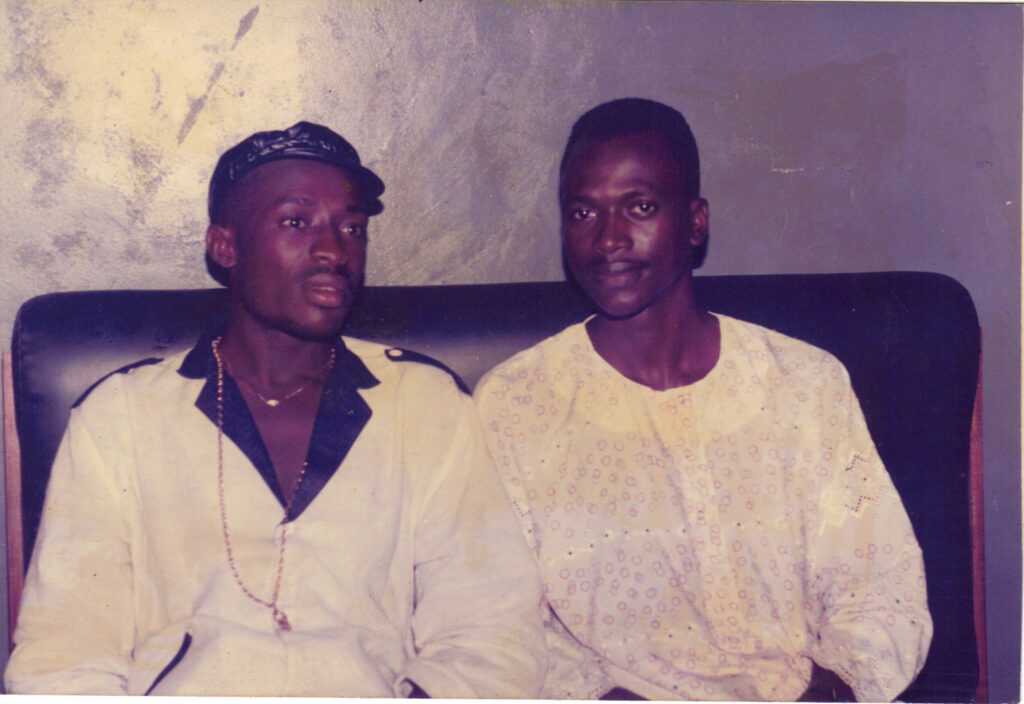
Ayuba (l) and Sheriff on their first meeting at Ariya Niteclub
Tell us your story with Ayuba; how you met him, how was it managing his image then?
I was a young man acquiring journalistic skills under Mr. Ladi Ayodeji of the defunct Weekend Beats magazine. My role was to follow some senior writers to cover entertainment news. Every Wednesday we would go to the Performing Musicians’ Association of Nigeria ( PMAN) meeting on Allen Avenue in Ikeja. It was a pleasant atmosphere back then. Everyone used to come there: people like my friends Collins Enebeli, Tony Okoroji, my old good friend Ali Ibrahim ( Hausa drummer / producer), Kim Lawani, Eddie Lawani, Pedro Okojie, Wale Olomu, Halim Mohammed, Yinka Oyekan, Emma Agesse, Dele Aberuagba, Kunle Onime, and Kunle Bakare ( who was Dele Abiodun’s PRO at the time and writer/ editor at City News, if I may recall).
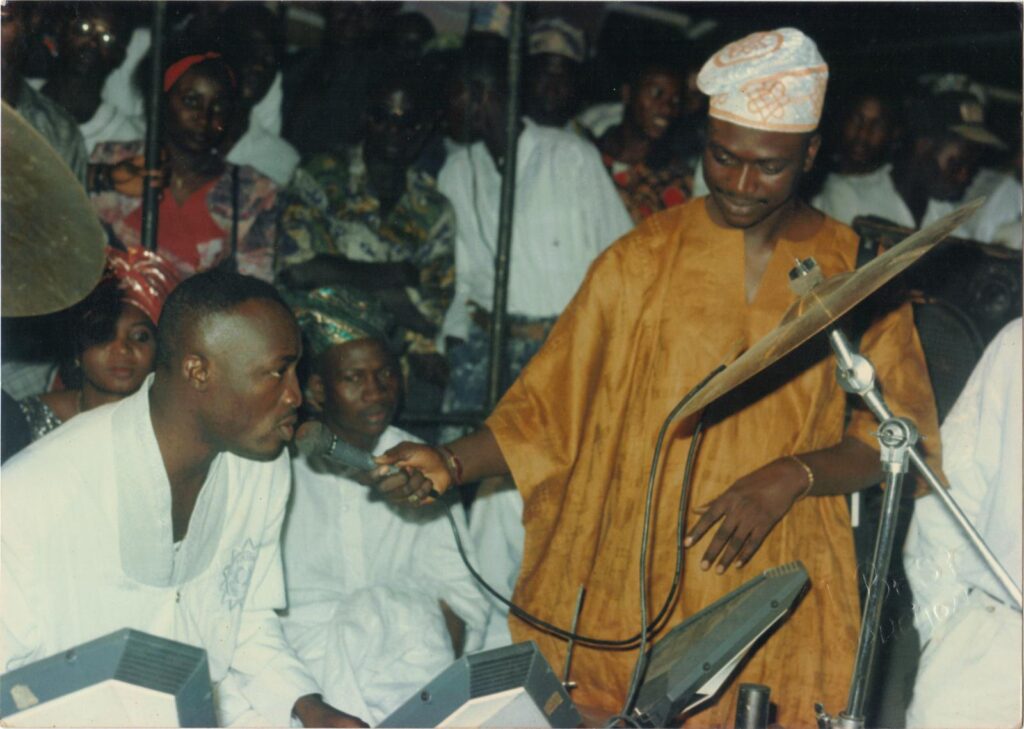
Ayuba with Sheriff in a concert
Sometimes we would hang out at Klass Night Club. It was during that time that Kunle Bakare ( former Dele Abiodun’s PRO) approached me and said he has an unknown Fuji artiste who needed a good publicist/ manager to transform his career. He said he believed that I would be the perfect guy for the job. I was an ardent music lover. I listened to every genre of music from around the world- classical music, Jazz, Fela ´s Afrobeat, reggae, Blues, Country music, RnB, Hip Hop, Indian Music, and all African Music. I just loved music. I have always been a walking music encyclopedia ( lol). I had tremendous appreciation for Yoruba music. Artistes like Ayinla Omowura, Haruna Ishola, KING Sunny Ade, and all the top fuji artistes. But I had never heard of Ayuba. Kunle Bakare connected us.
Ayuba and I met for the first time at King Sunny Adé‘s office in Jibowu. I was there early that morning , KSA was a nice host. He said he just came back from a European tour that week. I remember he said ‘please do whatever you can to promote Ayuba. He is talented, and he has been doing a good job performing at Ariya Night Club when I’m out of town’ I said yes sir, I will do my best. Minutes after, Ayuba walked in. We immediately connected. We were both very young and athletic. Ayuba was cordial and polite. Right there I could tell that we both came from good familiy backgrounds. We spent a couple of hours talking about his musical aspirations. I gave him my views and strategies on how we could achieve success together. During that time, Ayuba was living in a one-bedroom apartment in a 3 or 4 -story building on Ikosi Road in Ketu area of Lagos. We were like brothers. We enjoyed each other’s company. We respected each other’s talents and intelligence. We engaged in a process of ideation by spending many hours writing lyrics, creating beats, strategising on how to become big. It was fun managing him, because he allowed me to really control his career. He gave me complete autonomy on the repackaging of his image, the direction of his music, and the reorganisation of his band and business. It was a great partnership. I knew what he wanted and he knew what I wanted. Some people even thought we were siblings. He allowed me to make most important decisions about his career, and I knew I had the onus of making positive impacts. As you can see today, our partnership paid off. We redefined FUJI music, and reinvented the genre forever.
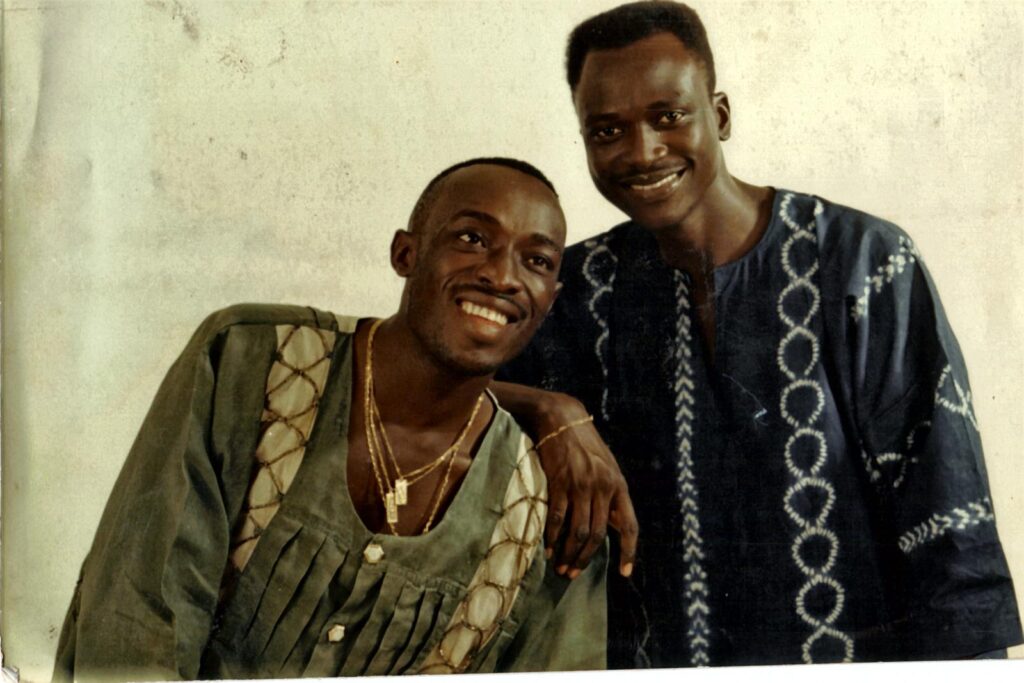
Ayuba and Sheriff in a photo shoot for Bubble album
Prior to our partnership, AYUBA had recorded six albums for a local record company in Ketu called Success Records . My first bold decision was to void that contract. Everyone was shocked. Some of Ayuba’s old organisational members and band boys were not happy about that decision. I had my conviction and Ayuba supported me. He told the band, I believe in Sheriff. I have the feeling he would help transform this band. I loved Ayuba for that. Because the old man who owned Success Records asked him in front of I ‘why would you let this skinny college boy disrupt our business?’ Ayuba simply said that he believed I was doing the right thing. I promised never to let him down for trusting me and putting his career in my hands. I then suggested not to him not to record any album for a while. If you recalled back in those years, artists were recording full length albums three or fou times in a year. It was ridiculous. I said no, to recording new albums. Instead we were fully engaged in rebranding Ayuba’s image and reinventing our music. One day, I told Ayuba that I had the idea of signing him with Sony Music. At the time, it was a laughable idea. Sony just released Rhumba Dance by Mike Okri, I think. They were releasing Columbia/ CBS artistes like Bobby Brown, MC Hammer, Michael Jackson, etc. Of course, there was Sir Shina Peters who just released ACE album, which was the biggest album in Nigeria. Ayuba initially thought my idea about going to Sony Music was unattractive and unattainable ( lol). However, I had my conviction and I was ready to move forward. I took a live performance demo tape to Sony Music, where I met the then A& R Manager Laolu Akins, the PR Manager Tony Alenke, and Laolu’s assistant, Bimpe Amoje. They all listened to me, but were a little bit apprehensive about Ayuba’s potentials. Later I found an abandoned clubhouse on Desalu Street in Ebute Metta. We cleaned it up and started having a show there every Friday night. I organised a special night and invited Sony Music personnel. I remember Mr. Laolu Akins came in around 2 a.m. that night. He saw the band in full swing. We were young, innovative, and vibrant. After the show he asked me to come to Sony the following Monday. I met with him, Mr. Oyeshiku, and Chief Madam Keji Okunowo, the chairperson of Sony Music. They asked many questions about Ayuba, his personality, the band etc. I told them that we were the most disciplined and organised Fuji band in town, and that I implemented no alcohol, no cigarettes, no drugs rules. Any band members that violated those rules were automatically fired. We were serious, and they would not regret signing Ayuba and the Bonsue Fuji Band ( as the band was called then).
We started focusing on younger audiences around Nigeria by performing on college/university campuses. I encouraged Ayuba to change his fashion style. I suggested that he didn’t have to dress like other Fuji artists. I wanted him to dress more like pop artistes and portray a youthful appearance. Meanwhile, I kept going to Sony, and putting pressure on them (lol).
At some point Ayuba suggested that we should go to other local companies like Lati Alagbada, Ogo Oluwa, Olumo Records, etc. I was persistent and stuck to my belief that things will work out with Sony. A couple of months later, Ayuba and I went to Sony to sign a two -album contract. Sony wanted multi-year and multi-album contract, but I told Ayuba we were going to do only two albums for Sony, and after that he should have his own label. That was my strategy. Remember we didn’t release any album in more than one year. We had new songs written, we had new beats. The slogan ‘It’s bubbling…’ came from a conversation with some friends who were students at UNILAG at that time. There was a Chicken George Spot back then at Abule Ijesha where young people used to hang out and bubble. The parlance was incorporated into a song and the rest is history.
Mr. Laolu Akins started coming to our rehearsals, and by the time Sony took the band to Afrodisia ( Decca) recording studio, we were more than ready. We recorded mostly at night with the ace recording engineer, the late LAK Adeniran. I remember the first time we played a tape of Bubble album, post-production, in Tony Alenkés office at Sony Music headquarters on Aromire Street, Ayuba looked at me and said ‘Sheriff, I don’t think this album will it sell. It doesn’t sound like a normal Fuji album’ and I laughed and said ‘If the album fails, I will quit the music business and stopped being your manager.’ As fate would have it, Bubble became the biggest selling Fuji album ever, domestically and internationally. It redefined Fuji music forever. It laid the foundation, to some extent, for today’s Nigerian music.
Managing Ayuba was fun. We did everything out of love. We were very compatible. We trusted each other and worked hard. Ayuba was the first Fuji artiste to start performing in big concerts in Nigeria and around the world. We laid a solid foundation and set the bar so high to a level that no other Fuji artiste can ever reached. Ayuba and I had the combination of talents, education, and discipline. It was fun.
You were one of the Frontline artiste managers that was well sought after, why did you abandon all that relocated to America when you did?
Thank you. By the way, I am currently in Europe, ( lol). To answer your question, prior to managing Ayuba, I had strong interest in academia. Coming from a very conservative and comfortable family, it was required that I complete my advanced degrees. Ayuba and I had that conversation. So many artistes were contacting me, including K1 The Ultimate who I love dearly. He has always been kind to me. The other artistes that I was secretly close to was the late Tyna Onwudiwe. She even floated the idea of doing a duet with Ayuba at some point. After I finished work on the follow up album to Bubble, Mr. Johnson Play For Me, I made the decision to go back to school. I obtained an Associate Degree in Cinematography, a Bachelor degree in Political Science pre-law, and a Master of Science in Public Administration and Policy Analysis. Remember, I have always been a creative writer. I am prolific in poetry, fiction, and lyrics. In fact writing is my first love. So I wanted to enjoy my other talents and challenge my own intellectual capacity. That’s the reason why I left show business. However, I didn’t really abandon it, because I’m still advising some young artistes and writing lyrics for others occasionally. If any artiste needs my services, I am always available; on my own terms of course ( lol).
How was artiste managers’ job then?
For me, it was fun. Mind you, I was shy and reserved, but I loved artiste management. It provided a platform to contribute to the Nigerian culture. It was something I did with passion. I am proud to say that I was one of the people who laid the foundation for today’s entertainment industry in the country. We were great back then, especially when we formed AAMMP ( ASSOCIATION OF ARTISTES MANAGERS AND MUSIC PRODUCERS) with the hard work of people like myself, Collins Enebeli, Gideon Nwaomu, Kim Lawani, Pedro Okojie, Kunle Onime, Morgan Okunuga, Kent Uche, Dayo Olomu, Prince Asheperi, and so many others. Back then we were collaborators and very supportive of each other. No envy, no jealousy. We were having fun, while working hard and being successful. I had great friends like Niyi Akinsiju, Chief Dele Momodu, Late Emma Agesse, the late great comedian, Prince Gbenga Adeboye, the late reggae stars Ras Kimono and Majek Fashek , and of course Ms. Funmi Davis ( at the then NTA 7) , all of whom were very supportive and very close to me at that time. They were my secret support system that people didn’t know about. The job was challenging. There were no cell phones, no internet , no apps, no ridiculous influencers (lol), or social platforms. We did a lot of legwork and networking within and outside Nigeria.
How or what brought you into the job of a publicist?
It was primarily my love for music, especially Nigerian music. My writing and creative talents solidified my interest in the job.
Tell us more about Ayuba ‘s days at DEBASCO where he held a weekly gig then and had his office. Who brought the idea of performing at DEBASCO to him?
That was my idea. As I said earlier Ayuba was fantastic at listening to me and buying into my ideas or suggestions. After Bubble became a hit. I quickly thought about long term advantages and sustainability of his career. He rented a new house in Itire and we converted his old apartment in Ketu into a booking office. However, I didn’t believe the area was ideal for business. So I approached Chief Tunde Debasco and made a deal with him. He gave us a whole office block in the premises for a mere N25,000 a year, near his hotel. In return we hosted a weekly gig that attracted more than a thousand people every week from around the world. After Africa Shrine and Shina Peters’ weekly show at Stadium Hotel, Ayuba’s show at Tunde Debasco was the biggest weekly attraction in Lagos. It was a place to be.
Some school of thought still believe Ayuba indirectly gave KWAM1 the opportunity to Lord it over all fuji acts when he went in search of the golden fleece in America. They anchored their reason on the fact that before he left for America then, he was a bit ahead of KWAM1 as the best fuji music dancer and haven won many awards at the Nigerian Music Awards?
It all depends on individual’s perceptions and interpretations. Ayuba and K1 are two different artistes like Michael Jackson and Prince, Fela and Manu Dibango, Davido and Wizkid, or Biyonce and Taylor Swift. Their musical formats are different. Ayuba is successful in his own right and K1 is successful in his own right. I will not subscribe to the notion that one ceded his position to the other. It is all about individual’s taste and appreciation for the art of music. For me I enjoy listening to K1 as much as I enjoy listening to Ayuba.
Thanks.
My pleasure always!


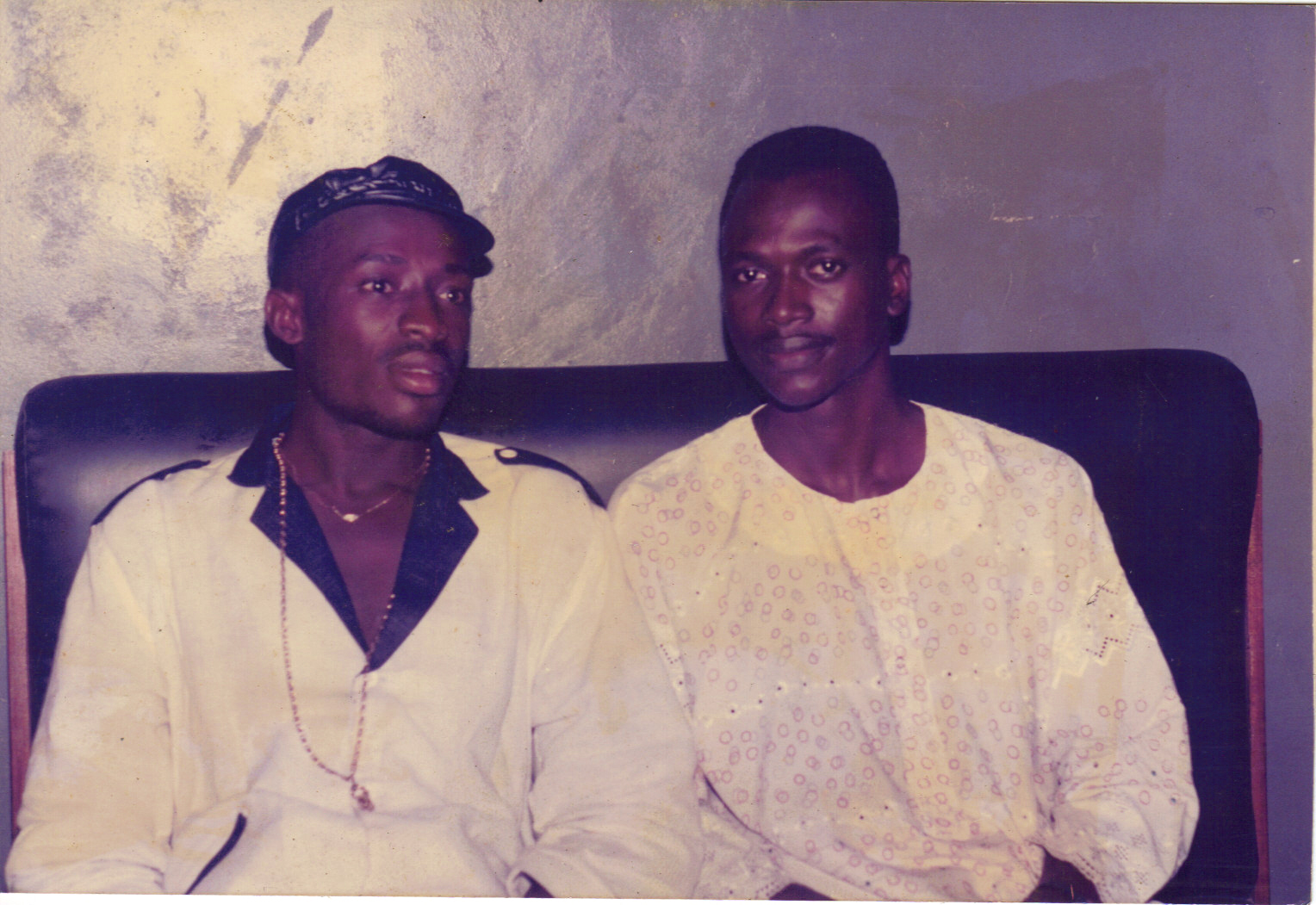

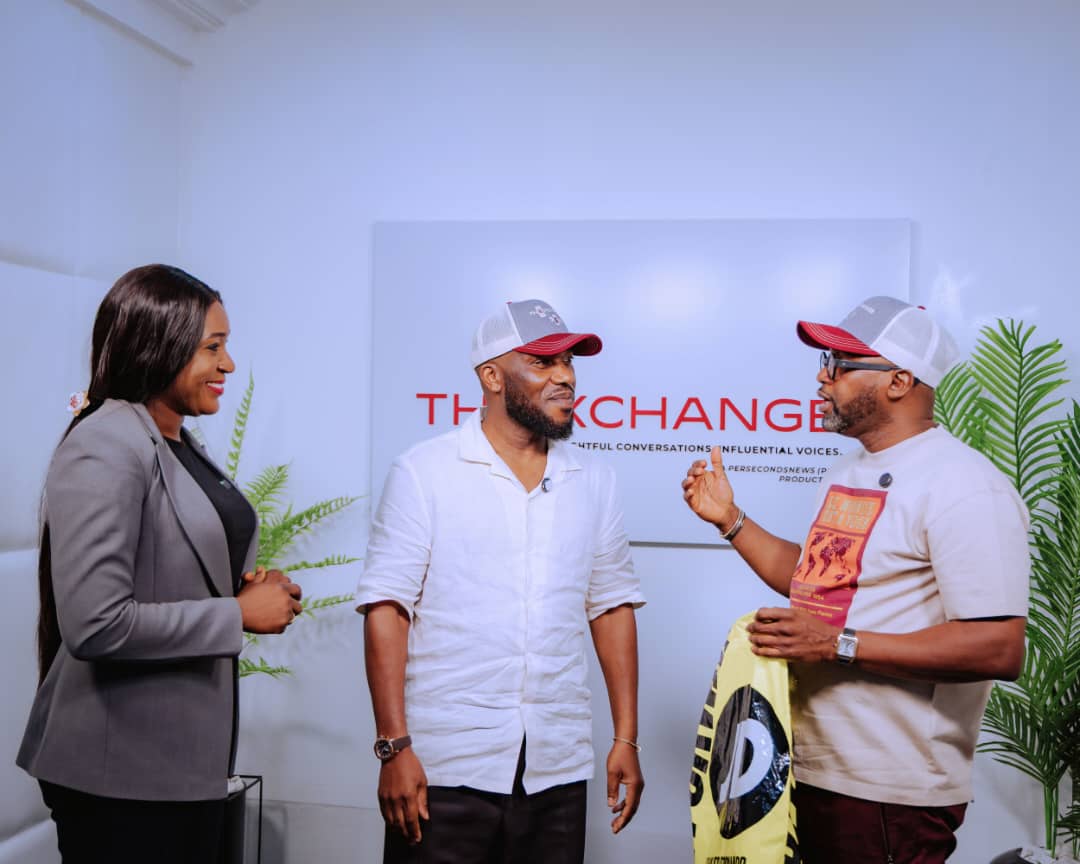

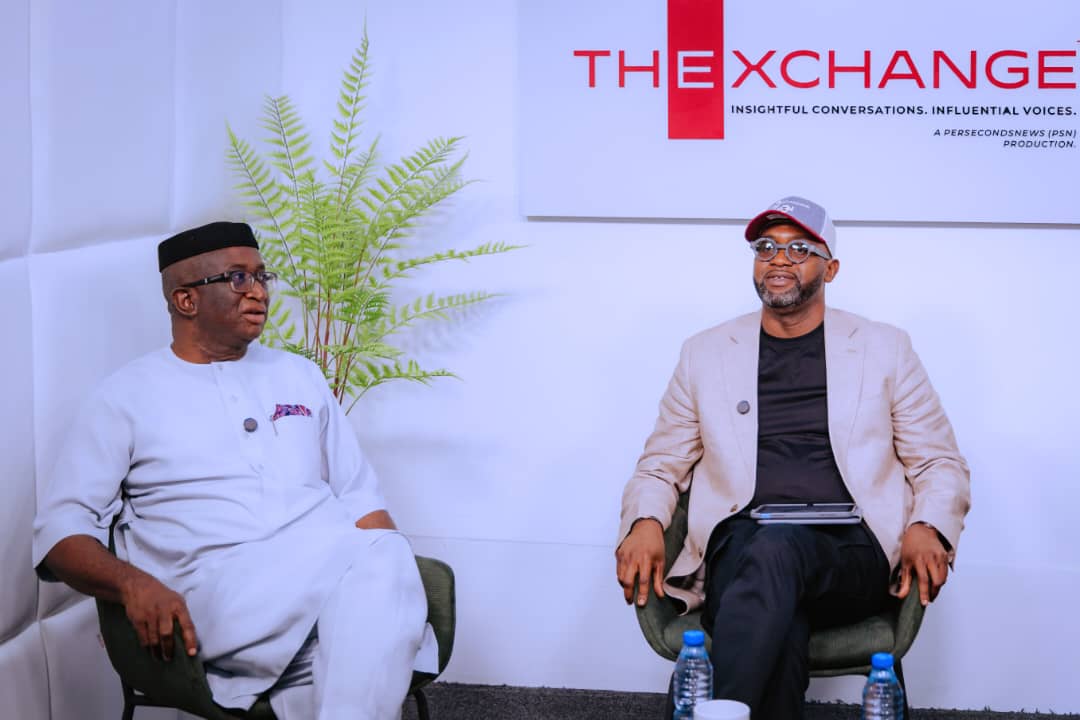
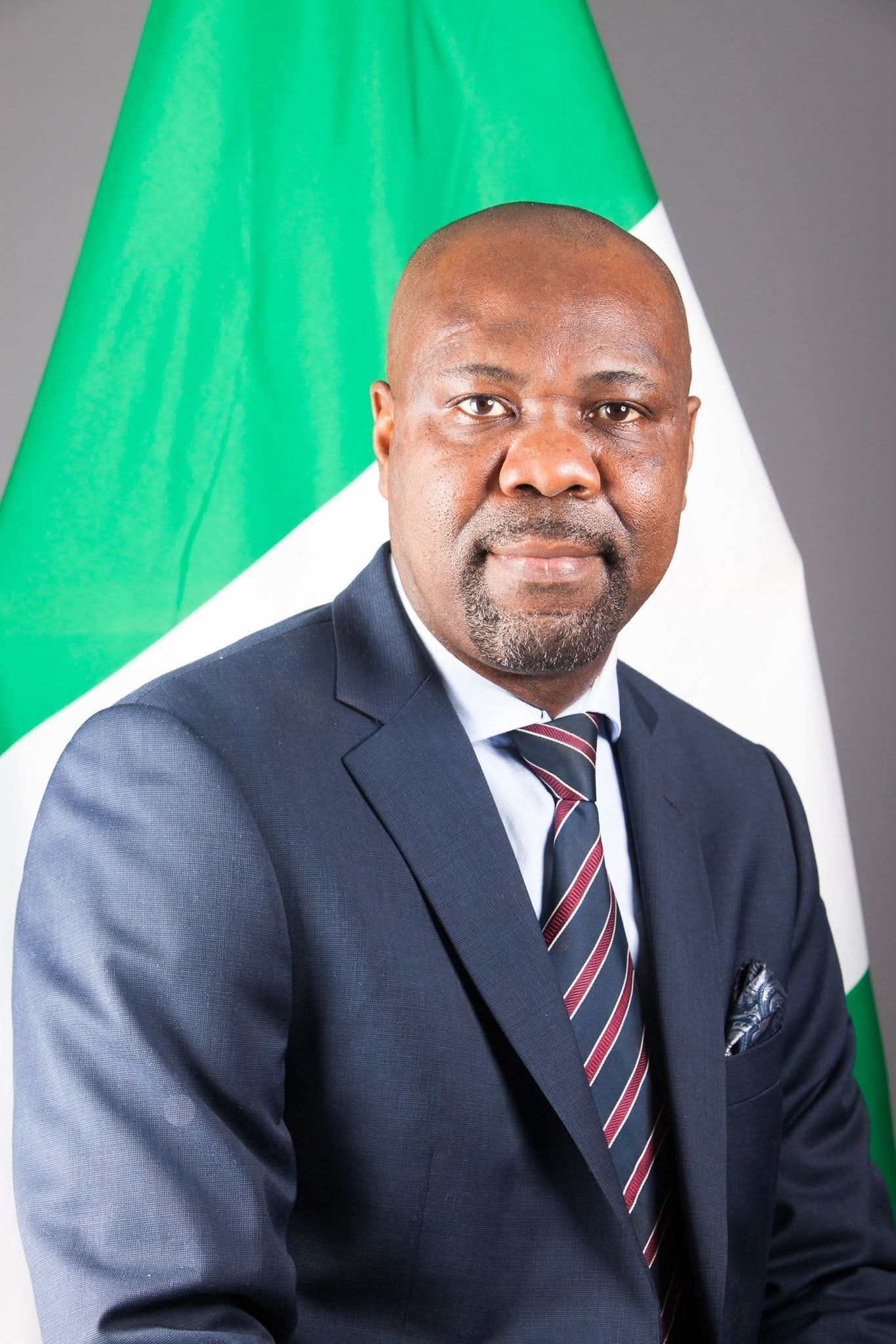

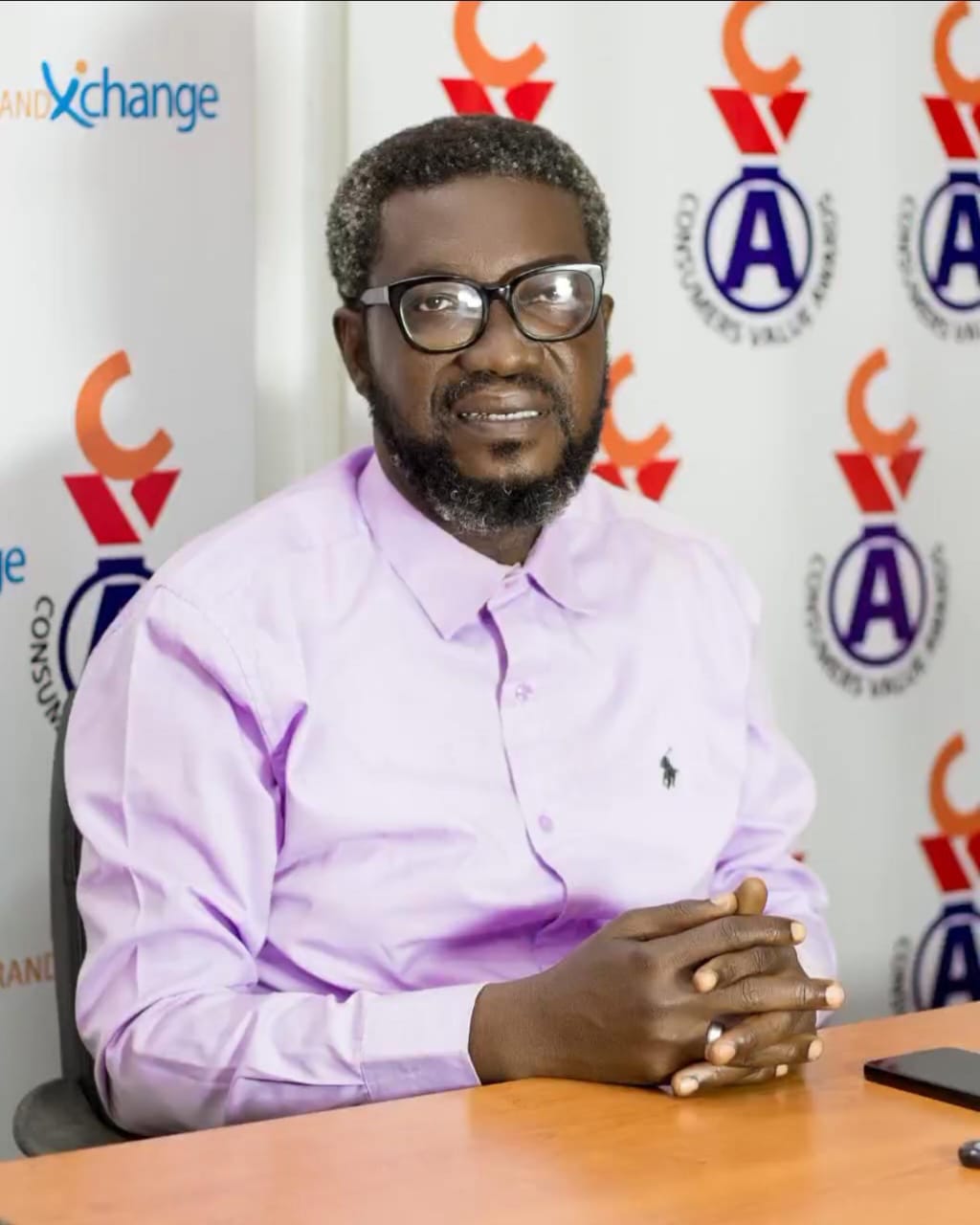



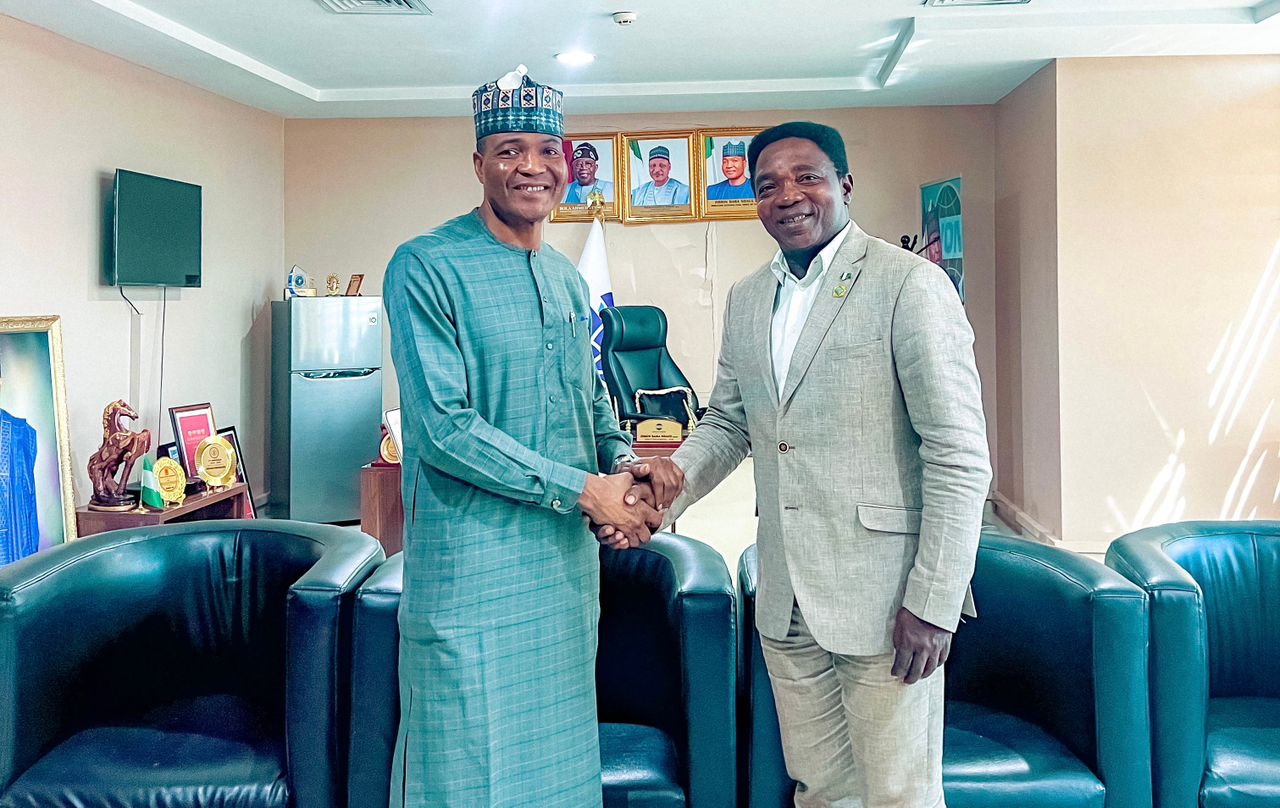
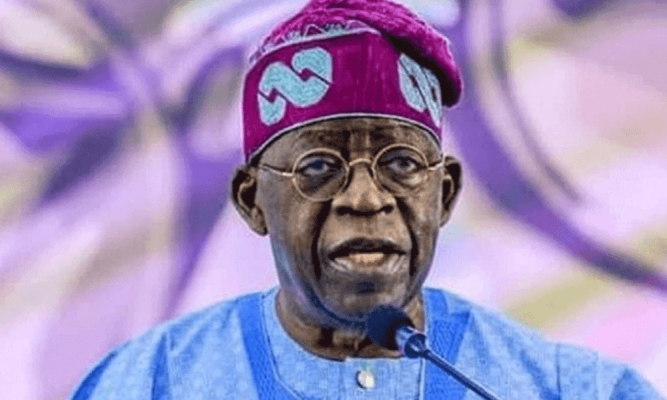
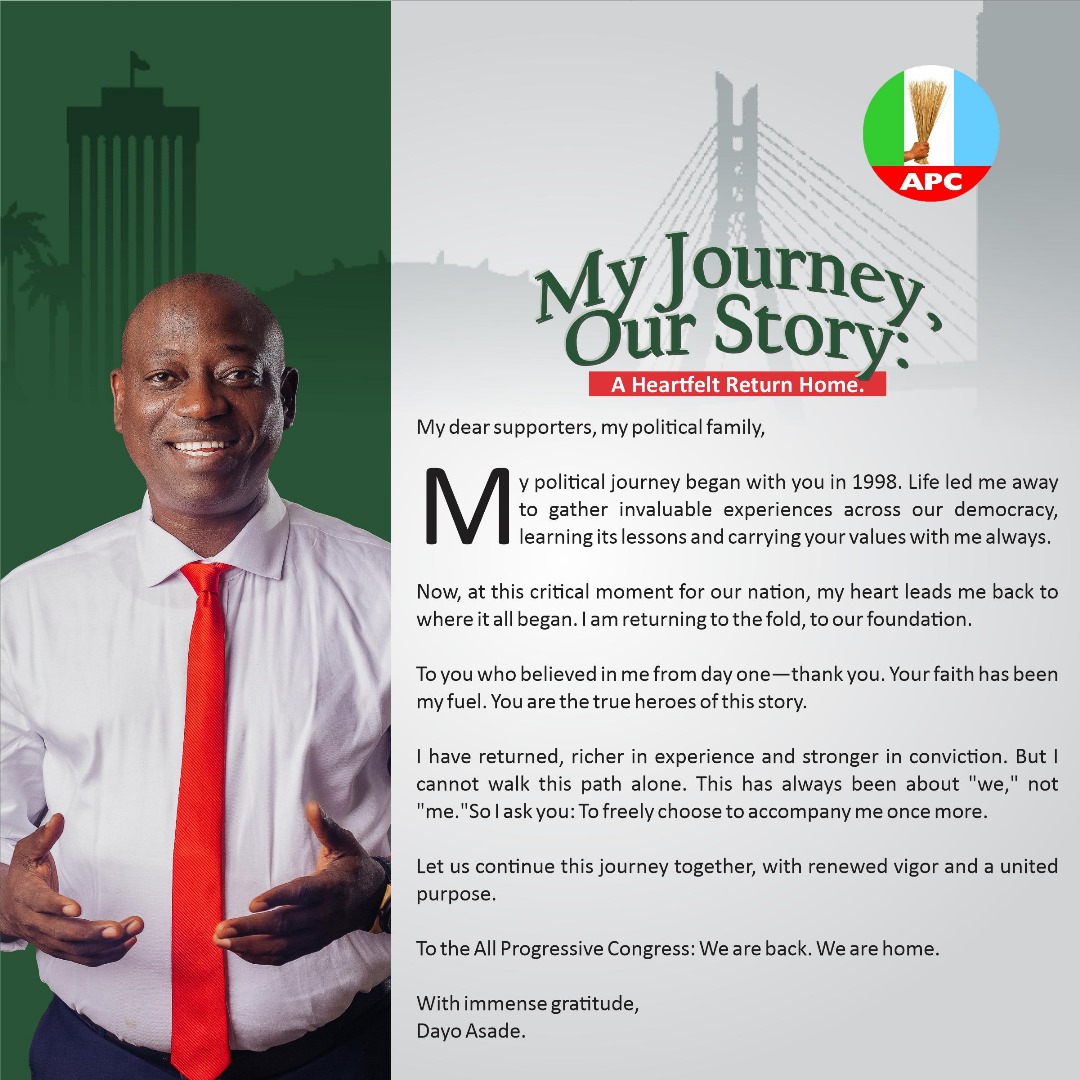
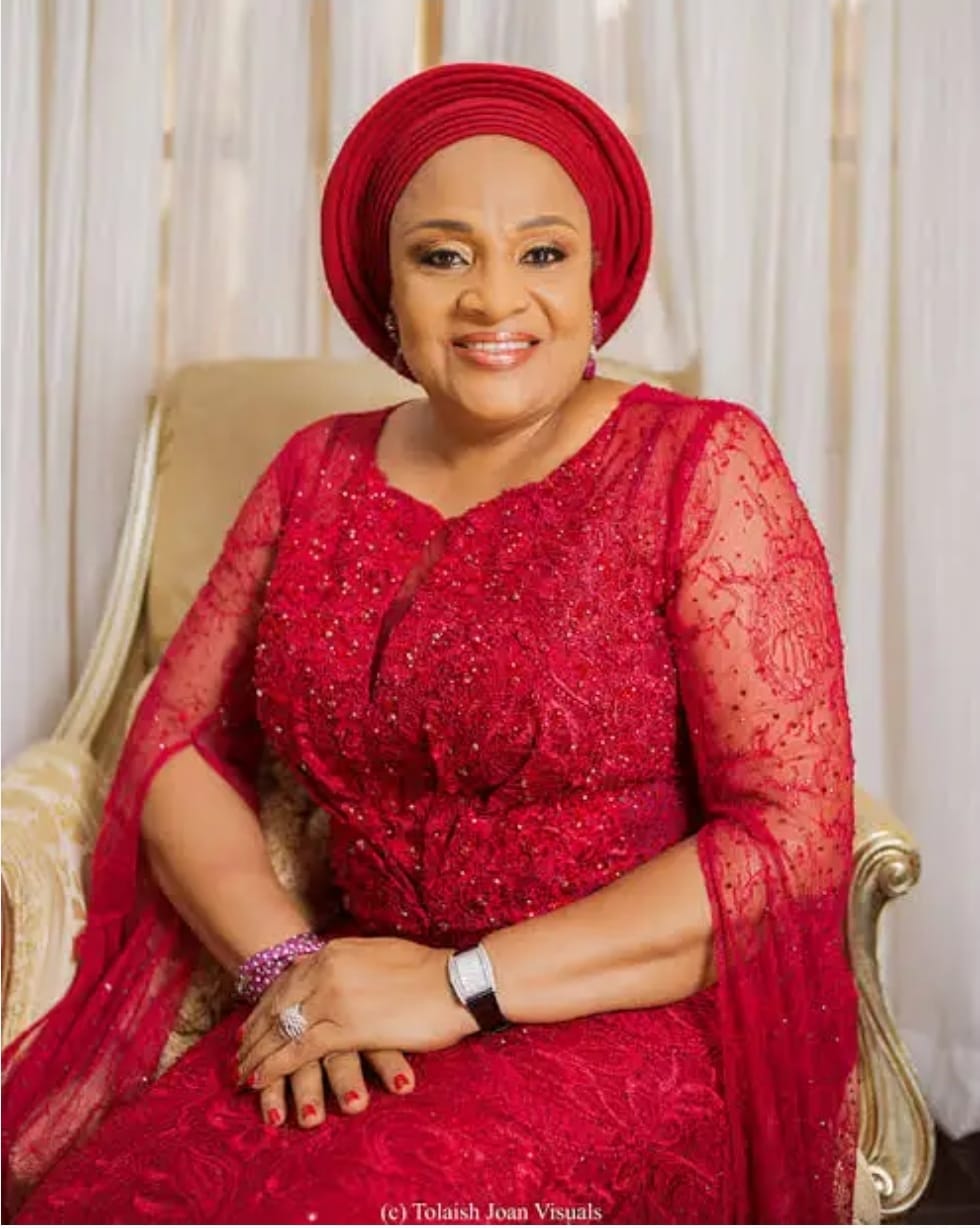
Leave a Reply